MEATS Elisava: Communication Vessels
En colaboración con PLANTA by Fundació Sorigué y Sorigué
Sala Àgora de Elisava, Barcelona, SPAIN . 14th of June - 5th of July 2024
location:
Sala Àgora de Elisava
La Rambla 30-32,
Barcelona, Spain
_Communicating Vessels is based on on-site work in two fluvial spaces with very different characters, but which share obvious features of ‘third nature’: i.e., physical or abstract objects that transcend traditional distinctions between nature and culture (a contested concept discussed in the works of McKenzie Wark, William A. Johnston, Celeste Olalquiaga, and Anna Tsing, among many others).
_the first of these fluvial spaces, the former bed of the Segre River in Balaguer, is currently the property of Sorigué, a business group mainly dedicated to the construction, services, technology, and water engineering sectors. The riverbed is open-air mined to extract concrete aggregates (sand and gravel). The second space is the Besòs River in Barcelona / Sant Adrià, a transformed river in a heavily urbanized environment with reduced flows due to industrial, demographic, and climatic conditions. The Besòs is currently a fragile and vulnerable ecosystem, and we focused on its final section: the mouth and beach.
_the proposal studied the relationship between these two fluvial spaces—one a site of extraction and the other a site of reception—using the concept of ‘communicating vessels’ to understand the source river (ancient Segre) and to propose an action for the destination river (contemporary Besòs).
_we explored practice-based responses to the following questions: How can we contribute to the re-definition of the Besòs River as third nature? What simple, everyday, and ethical design-based processes can we imagine and carry out to redefine the river from a landscape, ecological, and social point of view?
_the care implied in waterway cleaning, the replacement of the elements that make up the riverbed(s), the investigation of the temporal realities of the river(s), and the reflection on the preciousness of fresh water in a time of climate emergency are some key topics that we discussed in the classroom as we defined our action.
_Communicating Vessels proposes an analysis of the site(s) from a geological-material point of view over time and in a speculative way, using the idea of river as a figure, metaphor, and leitmotif under an ecosophical perspective.
locación:
Sala Àgora de Elisava
La Rambla 30-32
Barcelona, España
_'Communicating Vessels' se basa en el trabajo in situ en dos espacios fluviales con caracteres muy diferentes, pero que comparten rasgos evidentes de “tercera naturaleza”, es decir, objetos físicos o abstractos que trascienden las distinciones tradicionales entre naturaleza y cultura (un concepto controvertido discutido en los trabajos de McKenzie Wark, William A. Johnston, Celeste Olalquiaga y Anna Tsing, entre muchos otros).
_el primero de estos espacios fluviales, el antiguo cauce del río Segre en Balaguer, actualmente es propiedad de Sorigué, un grupo empresarial dedicado principalmente a los sectores de la construcción, los servicios, la tecnología y la ingeniería hidráulica. El cauce del río es explotado a cielo abierto para extraer áridos de hormigón (arena y grava). El segundo espacio es el río Besòs en Barcelona / Sant Adrià, un río transformado en un entorno altamente urbanizado con caudales reducidos debido a las condiciones industriales, demográficas y climáticas. El Besòs es actualmente un ecosistema frágil y vulnerable, y nos centramos en su tramo final: la desembocadura y la playa.
_la propuesta estudia la relación entre estos dos espacios fluviales, uno de extracción y otro de recepción, utilizando el concepto de “vasos comunicantes” para entender el río de origen (antiguo Segre) y proponer una acción para el río de destino (el Besòs contemporáneo).
_exploramos respuestas prácticas a las siguientes preguntas: ¿Cómo podemos contribuir a la redefinición del río Besòs como tercera naturaleza? ¿Qué procesos de diseño sencillos, cotidianos y éticos podemos imaginar y llevar a cabo para redefinir el río desde un punto de vista paisajístico, ecológico y social?
_el cuidado que implica la limpieza de los cauces, la reposición de los elementos que componen el cauce del río, la investigación de las realidades temporales del río y la reflexión sobre el valor del agua dulce en tiempos de emergencia climática son algunos de los temas clave que discutimos en el aula mientras definíamos nuestra acción.
_'Communicating Vessels' propone un análisis del(los) sitio(s) desde un punto de vista geológico-material a través del tiempo y de manera especulativa, utilizando la idea de río como figura, metáfora y leitmotiv bajo una perspectiva ecosófica.
_my roles in this art show: ╱set up/installation
╱exhibition design
╱co-curation
╱co-production
╱video-edit
_mis roles en la exhibición: ╱montaje/instalación
╱diseño de la exposición
╱co-curaduría
╱co-producción
╱edición de los videos
v v v
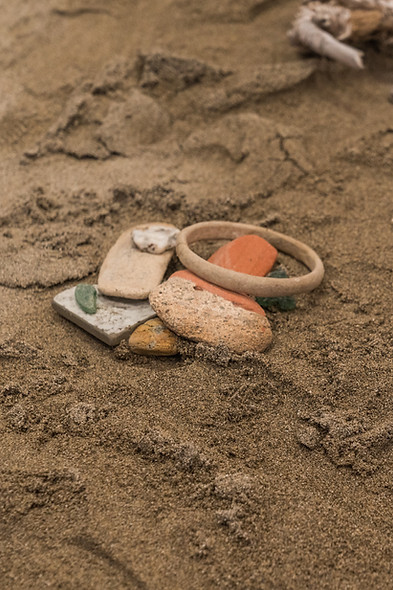





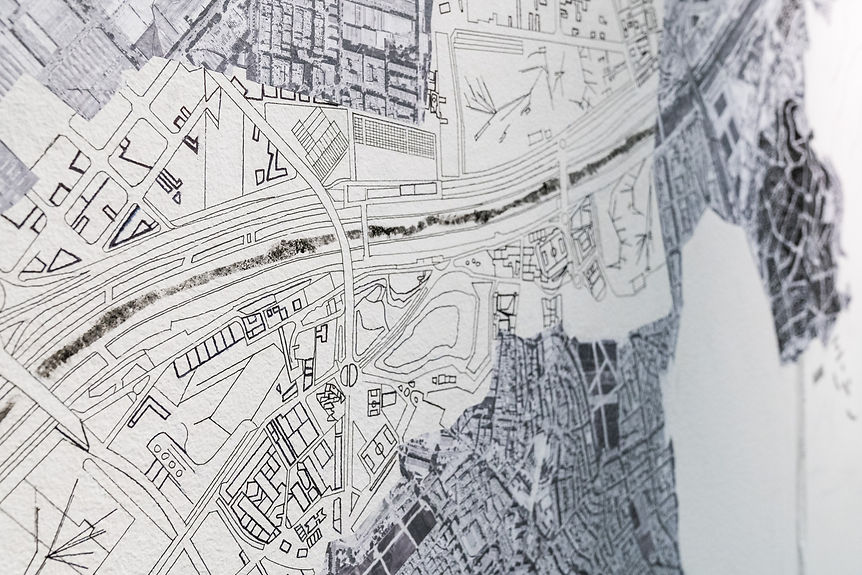

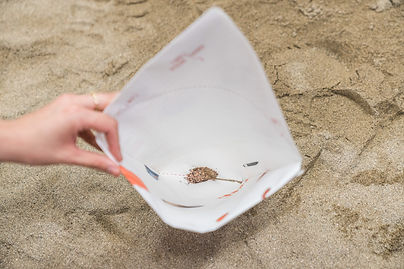
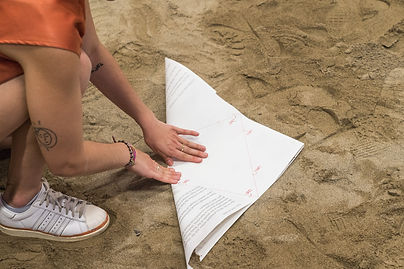

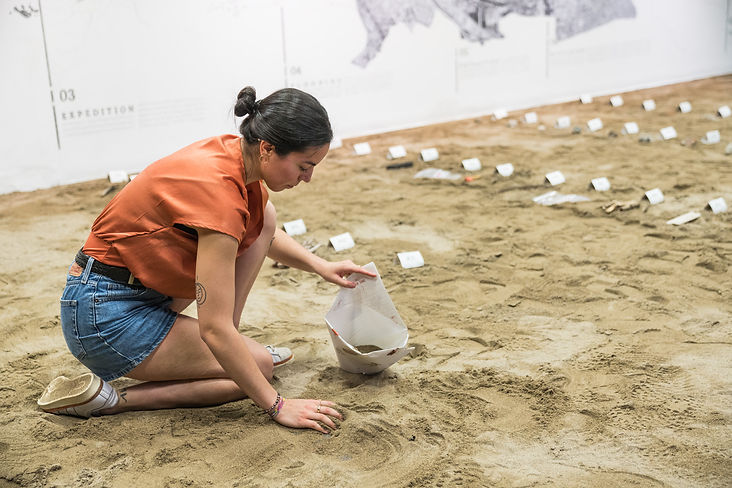
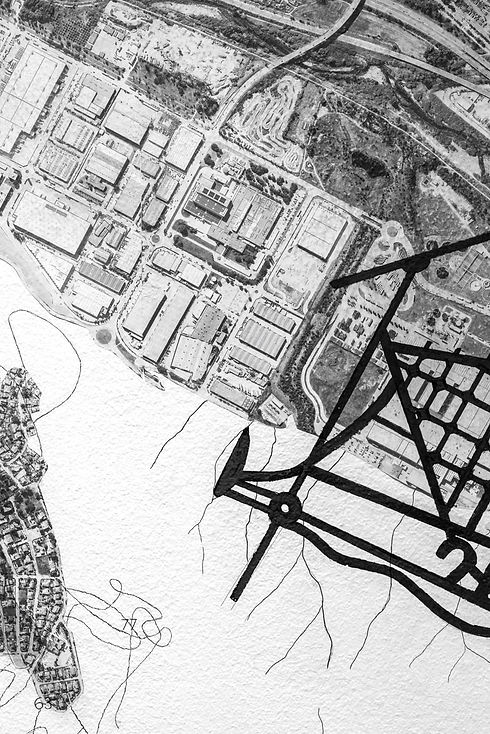

MEATS | Elisava (UVic-UCC) | 2023-24 in collaboration with Fundació Sorigué
Faculty: Stella Rahola Matutes, Roger Paez
Team: Lara Bertin, Rebecca Diaz, Athina Fatourou, Rana Genç, Josefina Gestoso, Sofia Giannoulidou, Sahar Hameiri, Ufkum Kaçar, Kiran Karwal, Eduardo Lazo, Diego Mata, Xavier Molins, Ane Santillan, Majka Tkacikova, Axel Van Eupen
MEATS directors: Roger Paez + Toni Montes (04)
_video: Majka Tkacikova @maju_maj
___//___//___//___
made with love. ©copyright 2023. Barcelona_Spain. Presov_Slovakia

